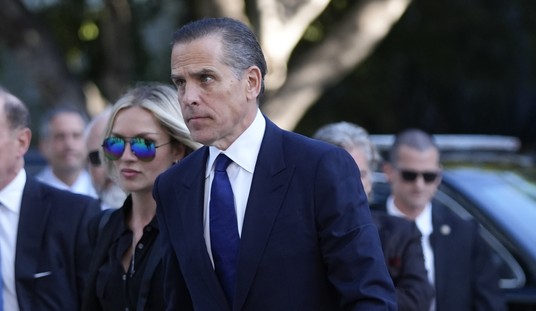It’s impossible to overstate the impact that Elon Musk and the Department of Government Efficiency are having on American government—and the public’s knowledge about what’s really being done with our money.
Nowhere is that more evident than the erupting scandal involving the United States Agency for International Development, which Musk and DOGE have exposed as little more than a front for funneling billions of American taxpayer dollars to absurd projects favored by Democrats and other leftists. The revelations of USAID’s profligacy and lack of accountability are coming so fast and furious, it’s hard to keep up with them, but conservative and alternative media are publishing the information as fast as it comes out.
For example, earlier this week, Townhall’s Mia Cathell published a brief list of some of the most ridiculous USAID-funded projects, including millions of dollars given to support LGBTQ+ organizations in Serbia, Africa and the Caribbean; a transgender opera in Colombia; a program to help disabled Tajikistani become climate change activists; and shipping condoms and other contraceptives to Africa and the Middle East. President Donald Trump’s press secretary Karoline Leavitt took Democrats to task at a press conference for their feigned “outrage” at the administration’s cancellation of the “long list of crap” USAID was funding, including a $20 million Sesame Street-type show in Iraq and millions for “sex changes in Guatemala.”
The USAID disclosures have also revealed the incestuous relationships between nongovernmental organizations receiving monies from the U.S. government and then funding each other, as well as the practice of American politicians and other prominent people being highly compensated for founding or sitting on the boards of those NGOs.
Recommended
To make matters worse, some media—left-leaning, of course—are also being funded by USAID. Stephen Green at PJ Media wrote earlier this week about the $8 million that we now know Politico received from USAID, and that Thomson-Reuters received $9 million to advance a government initiative called (I’m not joking) “Active Social Engineering Defense (ASED) Large Scale Social Deception (LSD).” According to a diligent researcher who posts on X under the moniker @DataRepublican, Bill Kristol and his venomously anti-Trump colleagues at the Bulwark also received substantial sums funneled through USAID and partner NGOs.
No wonder the panic is palpable.
As bad as all of this is—and it is bad, indeed—there are consequences that are worse, most notably the negative impact that even the best-run and most well-intentioned aid organizations have on the very countries and economies they say they are trying to help.
If you want to understand the nature and extent of the damage that international aid has on the economies of underdeveloped nations, I cannot recommend a better documentary than “Poverty, Inc.,” a compelling 91-minute film written by Michael Matheson Miller and Jonathan Witt.
Released in 2014, “Poverty, Inc.” is even more relevant today because of the intense scrutiny and criticism that international “aid” is—finally—receiving. The film contains nearly 200 interviews with entrepreneurs and thought leaders from some of the countries most devastated by what the filmmakers call “the global poverty industry,” including Haiti, Ghana, Kenya, Senegal, Bolivia, Peru and Bangladesh.
I have been showing the film to my students for 10 years, and every semester, their reaction is the same: They come away shocked and dismayed by the horrific effects that aid—even when motivated by compassion—has had on third-world nations.
The film demonstrates how the “free” goods provided by international aid agencies, churches and other charities warp the marketplace, destroy local small businesses and make it impossible for native entrepreneurs to compete. Well-intentioned programs like those encouraging the adoption of Haitian “orphans” created perverse incentives for poor parents to abandon their children, rather than helping families in need. And the social engineering efforts by environmental activists that encouraged Haitian farmers to abandon agriculture and move into the capital city of Port-au-Prince resulted in poorly constructed slums that collapsed during the January 2010 earthquake; that disaster killed hundreds of thousands of people and left more than 1 million homeless.
The quotes from the entrepreneurs interviewed in the film are telling—and heartbreaking. Eva Muraya, a Kenyan businesswoman, describes being able to buy clothing as a child made from cotton grown in Kenya “in the most beautiful varieties imaginable.” Now, she says, the dumping of secondhand clothing donated from Europe and North America has destroyed the cotton farms and the textile industry in that country.
Daniel Jean-Louis, a Haitian writer and activist, acknowledges the need for emergency aid immediately following the 2010 earthquake but insists that the ongoing presence of nearly 10,000 NGOs turned a “short-term natural disaster” into a “long-term unnatural disaster.” “No one in Haiti,” Jean-Louis says emphatically, “wants to be a beggar for life.”
Corrigan Clay and his wife, Shelley, moved to Haiti and started a jewelry-making business that employs dozens of Haitians. Clay echoes Jean-Louis’ sentiments. After the 2010 earthquake, he says he was contacted by a friend who had been in Thailand during the 2004 tsunami. “I’m glad you survived the earthquake,” Clay’s friend says; “I’m praying you’ll survive the arrival of the NGOs.”
Why does this system continue when its deleterious results are so obvious?
Scholars interviewed for the film, including Switzerland’s Andreas Widmer and England’s Theodore Dalrymple, explain that “poverty” has become big business, with hundreds of billions of dollars involved. And they warn that charitable giving is fashionable and makes people feel good about themselves.
Watching the reactions to the USAID revelations this week, it’s hard to know which motivation is harder to crack—abject greed, or the deep-seated desire to be thought “compassionate.” Either way, it’s clear that the current system of international aid needs to go. At best, it is a classic example of the road to hell paved with good intentions; at its worst, it is a cauldron of corruption.
We’re seeing both.

























Join the conversation as a VIP Member